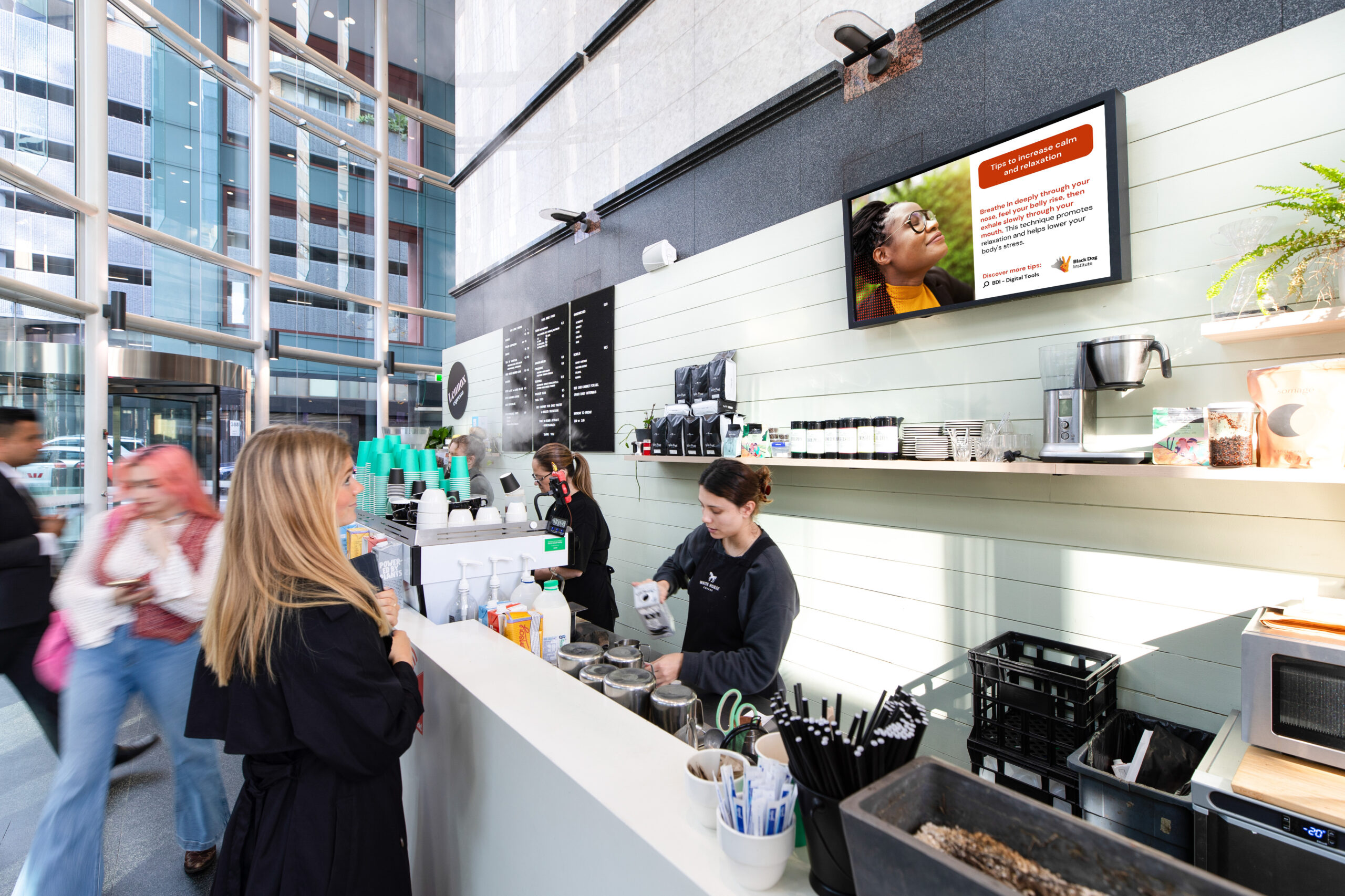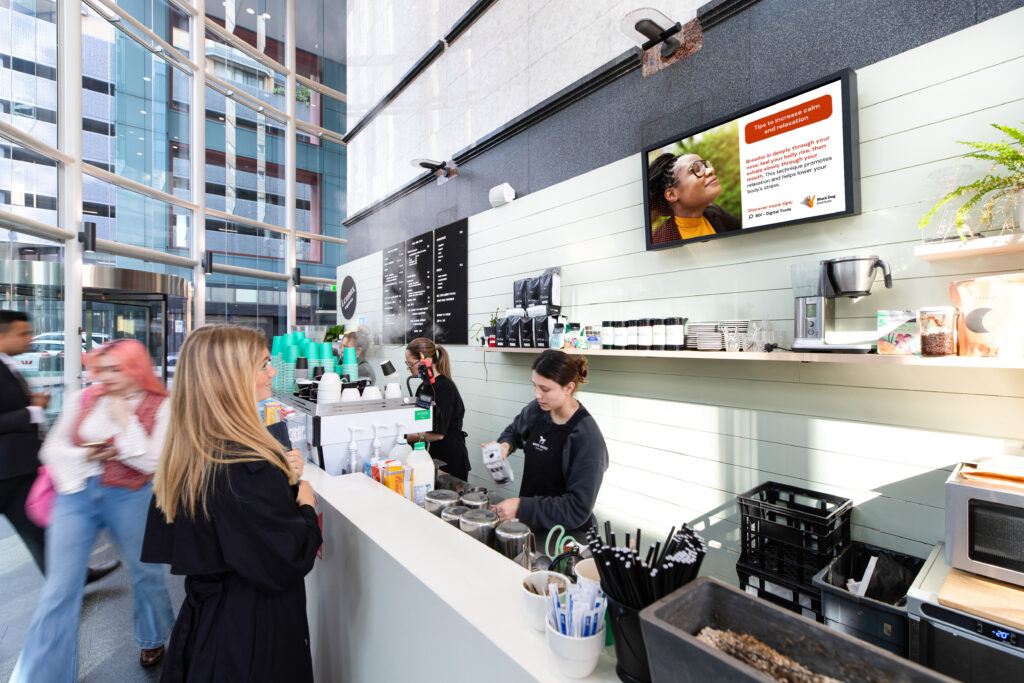
October is Mental Health Month, a time for everyone from individuals to businesses to reflect on the profound impact of mental health on our society. So as we draw to a close on another mental health month, it’s important the conversation about mental health continues.
At Motio we have an ongoing commitment to champion mental health initiatives, including our content partnership with Black Dog Institute. And we had the privilege of sitting down with Deb Agnew, Senior Manager of Brand and Marketing Communications at Black Dog Institiute to chat through the steps to creating safer work environments and supporting others. As well as some valuable insights on maintaining mental health well-being, and most importantly, initiating difficult conversations with loved ones.

What motivated you to join the Black Dog Institute and become dedicated to the cause of mental health?
Deb Agnew: I’m very passionate about mental health and went through a very trying time with a family member experiencing anxiety and depression a few years ago. It was a very dark and terrifying time and inspired me to work with an organisation who is making strides to change the mental health care system in Australia. Hence my work at the Black Dog Institute, a world-leading mental health research organisation that is not only researching anxiety and depression but transforming people’s lives with its evidence-based mental health treatments, educational programs, services and resources.
The Mental Health Month theme this year is “We all have a role to play”, what does that mean to you?
DA: The theme underscores our shared responsibility in supporting better mental health for all people. The theme reminds us that supporting friends, family, and even strangers experiencing mental health challenges is crucial. So is promoting empathy and encouraging open conversations and reducing stigma. Advocacy, awareness, and creating safe environments are essential components of our collective role. It emphasises self-care while fostering a culture of acceptance and understanding. Inclusivity, prevention and early intervention are also key aspects, emphasising that better mental health is relevant to all individuals and communities. This theme calls us to create a more compassionate and supportive society where mental health is prioritised and valued.
Supporting those around us can be challenging at times. Do you have any practical suggestions to initiate meaningful check-in conversations with friends, colleagues, or family members?
DA: Initiating meaningful check-in conversations involves being empathetic, caring and lending an ear. Start by asking open-ended questions like “What’s been on your mind?” Or “How have you been feeling lately?” It’s important to be genuinely interested in their response, authentic and not to rush. Avoid judgments and offer your support, saying something like, “I’m here for you, and I care about how you’re doing.” Remember, it’s about listening, understanding, and showing you care.
In our fast-paced lives, daily stress can take a toll on mental wellbeing. Could you recommend some daily activities individuals can incorporate to better manage and reduce stress?
DA: To better manage daily stress and enhance mental wellbeing, consider incorporating some of these daily activities:
- Organise your day, routine and preparation is a good thing to provide structure and anticipate challenges before they become issues.
- Maintain social connections and time with friends and loved ones.
- Limit screen time, set boundaries on news consumption and prioritise adequate sleep, a healthy diet and physical exercise.
- Spend time in nature, time away from the hustle and bustle amidst trees is very soothing.
- Practice gratitude and acknowledging the things that you are grateful for, both big and small. What we focus on grows and multiplies, so focussing on what is working and makes you smile is important.
- I personally find Meditation a great way to destress, declutter my mind and create space for new ideas and opportunities.
If stress becomes overwhelming, seek help. There’s lots available. A good first point of contact is to check in with your GP. They can help by providing a referral to a psychologist. There’s face-to-face options or telehealth appointments. There’s also digital tools, resources or apps, help is at hand. Two notable evidence-based mental health apps from Black Dog Institute are myCompass, which helps you navigate your mood and SleepNinja which helps with sleep disturbances.

Raising awareness about mental health resources and support services is crucial. What actions do you think we can take not only during Mental Health Month but throughout the year to achieve this?
DA: To raise awareness about mental health resources and support services year-round, we can start by normalising discussions about mental health, destigmatising it and sharing personal stories. We can point people in the direction of evidence-based resources, like those provided by Black Dog Institute, that have been tried and tested and have been proven to work. We can encourage workplaces and schools to provide education and resources around better mental health and share information through their social media and community events. We can collaborate with mental health organisations, as well as local governments, and businesses to create accessible services and support networks. We can advocate for policies that prioritise better mental health, and support individuals seeking help without judgment. By maintaining a sustained effort in these areas beyond Mental Health Month, we can ensure that awareness and support for mental health are ongoing priorities in our communities.
BDI has been using Motio Health and Motio Café to promote some important messaging across Australia – how has it been going for you so far?
DA: Through the Motio network we’ve had the opportunity to reach millions of Australians. Many metro professionals through Café, as well as those focused on their health and wellbeing via Health. Within the first three days of BDI using the Motio media networks, we’ve had over 500 visits to our campaign landing page.
We know that out-of-home media impacts behaviour change by repetitively exposing audiences to clear, visually appealing messages. We want to elevate the importance of better mental health and increase awareness of Black Dog Institute’s ability to assist with treatments, programs, services, resources and digital tools to foster better mental health.
Finally, fostering a supportive work environment is vital. How can organisations reduce the stigma around mental health and create a space that encourages support for their employees?
DA: Organisations can reduce the stigma around mental health and create a mentally healthy and supportive workspace. We help organisations do this through our Workplace Mental Health programs. We educate employees and managers about better mental health, offering tools and resources to recognise signs of distress, promoting open dialogue about mental health concerns and ensuring access to confidential support services. Encouraging work-life balance and stress management techniques, and leading by example through visible leadership support for mental wellbeing. Ultimately, we know that better mental health pays dividends and leads to better productivity, better job satisfaction and better cost savings for organisations.
The Black Dog Institute is the only medical research institute in Australia to investigate on mental health. Their goal is to create a mentally healthier world for everyone, and Motio is a proud media partner.

